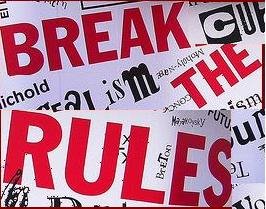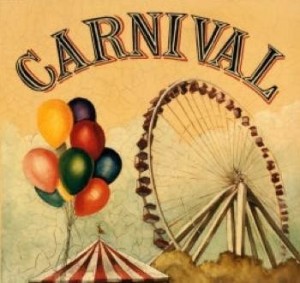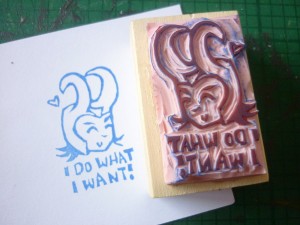(NOTE: Originally posted at Seattle Comedy Nerd)
Overfilled, the cupped hands drip.
Better to stop pouring.
One over-sharpens the well-forged blade,
and it won’t last long.
With gold and jade in the hall,
the house isn’t safer.
Wealth and pride
are the authors of error.
When the work is completed,
it’s time to retire.
That is the Tao of Heaven
Tao Te Ching; 9 Heaven
To me, this passage relates to improv in that it is all about knowing when NOT to do things.
Let us start at the beginning. In the beginning, as an improviser, most likely we find getting on stage to be terrifying. Either we have no acting background and so stage fright begins to seep into our minds, or we do have an acting background and not having the safety of lines/blocking/character is almost mind-boggling. Either way, entering (or worse, starting) a scene is something that we must be forced to do. Soon after, however, we realize that we can improvise on stage without actually dying. We look forward to spending time playing with our fellow improvisers and spending time on stage with them. This is when the lessons I see in this passage can begin to be taught because most likely, our hypothetical beginning improviser is eagerly starting scenes and finding reasons to be in each and every scene, hungry for more experience.
So now we must break it to them that more improvisers is not always better, and knowing when to stay out of a scene is at least as important as knowing when to enter one. Our beginning improviser probably already knows this. Some basic pattern recognition and analysis will reveal that the scenes that involve ALL the improvisers often line up with those scenes that, in retrospect, could charitably be called clusterfucks. No need to overfill the stage with potential main characters, better to identify the protagonist of our scene early and let the scene flow around her.
Parallel to the idea of overfilling the stage with actors is overfilling the scene with offers. In reality, they are the same problem: information glut. With too many actors, there are offers coming from each, so some will almost inevitably be dropped. But even with only two (or heck, one) actor on stage, it is important to know when to stop pouring information into the scene, lest it overflow, spilling those offers onto the desert sands, never to be seen again. Better to stop pouring and start drinking, following the offers you have and seeing where they lead you.
Jill Bernard (whose name, if you do not already know, you will quickly become familiar with by reading anything I write) made a wonderful drawing about precisely this. I do not have a photo of it at the moment, but I will post it later if I take one/find one. The gist is this: why spend your precious scene time searching for what the scene is about when you can just MAKE the scene about the first offer you get? There is no “best offer” that will make your scene amazing, your scene will be amazing by taking the first offer and making it the best, by which I mean make it affect your character and his relationships. After all, that’s what all the great offers do, isn’t it? So why not make the offer you got a great one?
I also wanted to touch on the second to last stanza, knowing when to retire. This stanza is all about endings, a very important part of improv that gets little attention. Endings are hard, especially in an art form whose very foundation is built on the idea of “Yes, and,” reminding us that there is always a next line, always a next move.
I’ve noticed as a teacher that many improvisers I teach are incredibly reluctant to leave the stage, even when that is the strongest move they could make. In fact, I’d say most of those students have their minds a little blown when they admit they had completed their objective and I ask them why they didn’t leave. When the work is done, it is time to retire, and if you have no objective, then it is time to leave the stage. Your fellow improvisers will fill the now-empty stage; that’s their job.
In the short form world, we tend to focus our endings on laugh lines. Regardless of where we are in the story arc of the scene, if you get a big laugh (or any other big emotional response, really), there is a very real possibility that the scene is about to be called. Speaking from personal experience, in short form we tend to more often run into the opposite problem: cutting scenes before they are “over.” I think this comes from how most short form shows are structured: a preference for many scenes with a focus on high-energy performance. Again from personal experience, I would say that while many scenes do get big laughs, the ones that get applause are the ones wherein everything is tied up neatly when the scene is called. So now the question becomes which is more important: striving for the completed story, or cutting early and leaving the audience wanting more. I’d say the former leads to more volatility in the overall quality of the show, while the latter is the safer, more traditional choice. I’d also say the former is my preference. Also, as a bonus, striving for the completed story will force you to realize when you are overfilling the scene with information, thus sharpening your storytelling.
When we move into the world of long form, endings become more ambiguous, but I think the goal remains the same: neatly wrapped packages of scenes with clear beginnings, middles, and ends. It’s just that now the packages need not necessarily be the entire arc of a story, but rather a single beat in that story.
I am rapidly losing my focus and this post is getting much longer than I thought it would. Perhaps another post on this topic will happen, but right now I need to stop typing and hit the Publish button. I’ll say that this got very Tao/Zen very fast, speaking to the importance of that which does not happen. I’m happy about that.





